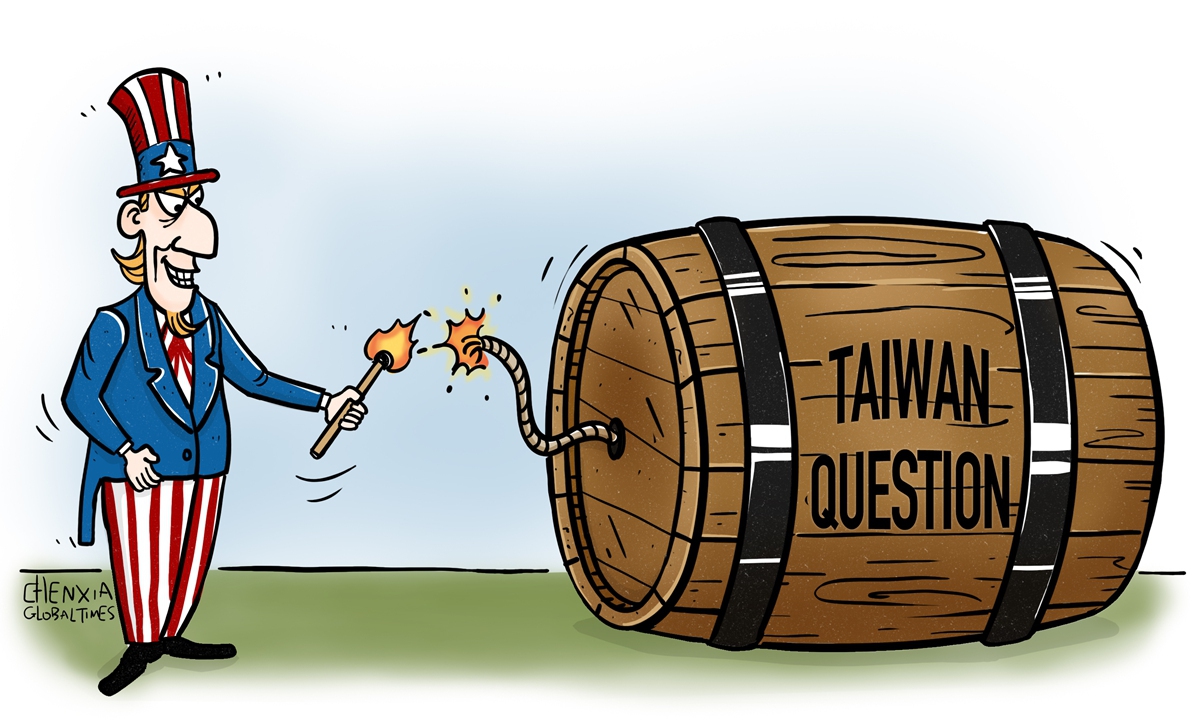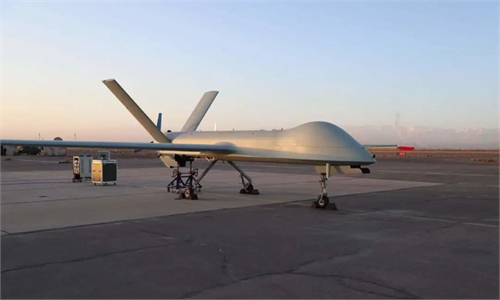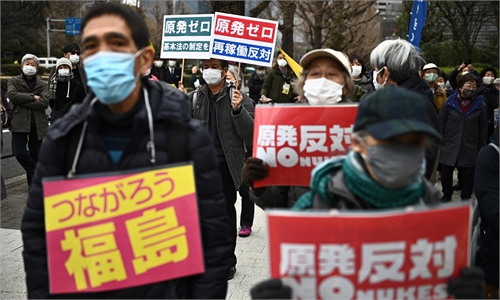Chinese FM slams US violation of commitment as Biden again talks about 'defending' Taiwan

Taiwan question Illustration: Chen Xia/GT
The Chinese Foreign Ministry on Monday slammed the US for seriously violating its important commitment of "no support for Taiwan secession" and sending a seriously wrong signal to Taiwan secessionists, after US President Joe Biden said US forces would "defend" the island of Taiwan if war breaks out, his most explicit answer so far on the question, which analysts believe suggested a shifting process in Washington's decades-long "strategic ambiguity" policy, rather than another gaffe by the 79-year-old president.
"We are ready to strive for the prospect of peaceful reunification with utmost sincerity and utmost efforts. At the same time, we will not tolerate any activity aimed at splitting the country and will reserve the option to take all necessary measures," said ministry spokesperson Mao Ning at a routine press briefing on Monday.
The spokesperson urged the US to fully recognize the extreme importance and high sensitivity of the Taiwan question and abide by the one-China principle and the three China-US joint communiqués and not send any wrong signals to the secessionists so as to avoid further serious damage to China-US relations and peace and stability across the Taiwan Straits.
No one should underestimate the Chinese people's strong resolve and capability to safeguard national sovereignty and territorial integrity, or stand against the 1.4 billion Chinese people, Mao said.
When asked about whether US forces would "defend" the island of Taiwan in a CBS 60 Minutes television interview aired on Sunday (US time), Biden said, "Yes, if in fact, there was an unprecedented attack."
Biden gave another "Yes" answer when asked to clarify if he means that US men and women would "defend" the island, in a way that is different from the military support given to Ukraine with weapons but no troops.
Despite a White House spokesperson saying that Biden's remarks clarified that US policy remains unchanged over the Taiwan question, Chinese experts said China clearly knows that the US is trying to erode its "one-China policy."
"If the US adheres to the one-China principle and recognizes that Taiwan is part of China, which means the Taiwan question is China's internal affair, why should the US talk about 'defending Taiwan?'" asked Xin Qiang, director of the Taiwan studies center with Fudan University and deputy head of the university's US studies center.
Before the latest statement, Biden had said twice that the US would "defend" the island of Taiwan, but none of the remarks were as clear as the latest one.
Xin told the Global Times that Biden' remarks are likely to represent not only his personal views, but also those in his White House team and various political forces on Capitol Hill.
The highly-provocative Taiwan Policy Act, which hollows out the one-China principle, sailed through a Senate panel this month, and is very likely to be passed in Congress and signed by the president.
While there have been no formal policy changes or announcements from the White House, there are growing signs of "strategic clarity," especially in terms of strengthening deterrence against the Chinese mainland, Xin said. He noted that the US may increase its support for Taiwan authorities in the form of escalating official visits, arms sales, and more under the surface, such as sharing intelligence and military technology.
Experts said the US is deviating from its past "strategic ambiguity." Biden seems to be saying that regardless of Taiwan secessionists' provocations, if the mainland uses force, the US would send troops, which is a talisman in the eyes of Taiwan secessionists.
If the US moves further toward such "strategic clarity" that is entirely targeted against the Chinese mainland and supports Taiwan's pro-independence behaviors, we will certainly have diplomatic, military and economic countermeasures for them, Xin said.
The People's Liberation Army (PLA) needs to be prepared for the worst case scenario of deep and direct military interference from the US and its allies in a possible military conflict across the Straits, Chinese military expert Song Zhongping told the Global Times on Monday.
The US may be well aware that the military of the Taiwan authorities may not be strong enough as a proxy to stop the PLA, so direct confrontation with the Chinese mainland is increasingly likely, as Washington regards the Taiwan question as a matter of maintaining its global hegemony, the expert said.



